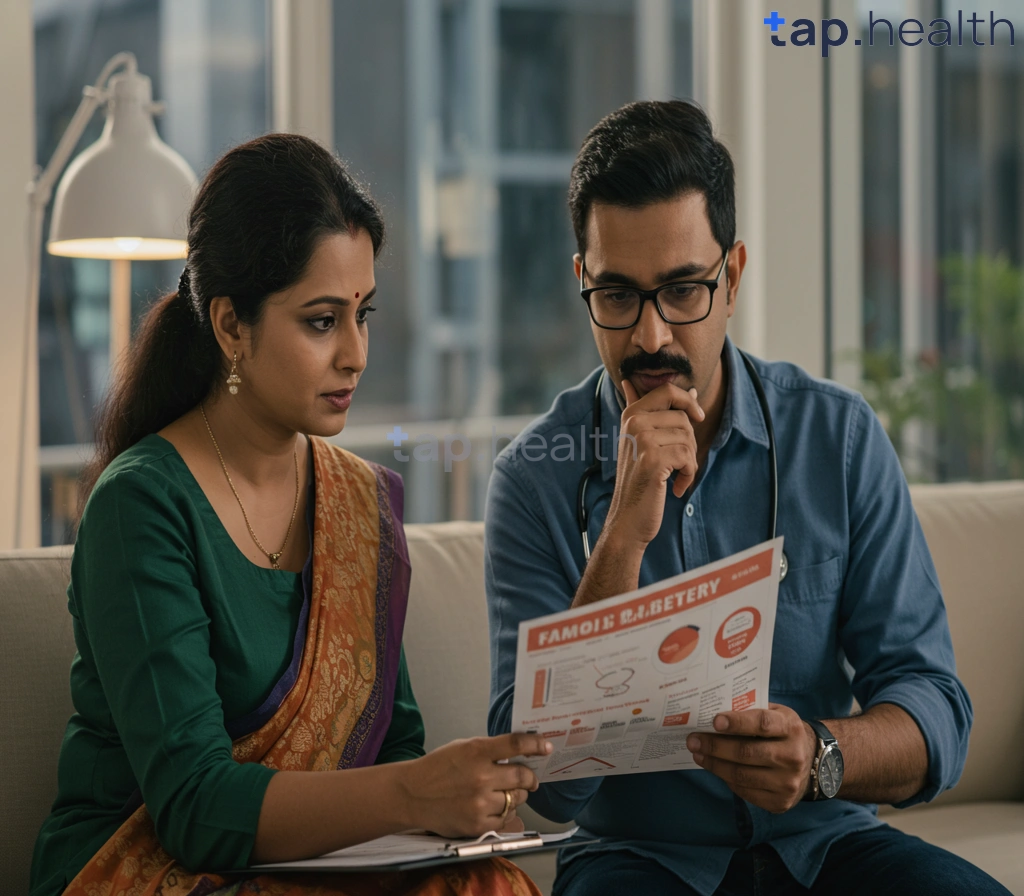Table of Contents
- Boost Your Quality of Life with Better Diabetes Management
- Mastering Diabetes: A Guide to Improved Well-being
- Diabetes Management: Prioritizing Your Quality of Life
- Improve Your Daily Life: Effective Diabetes Management Strategies
- Top Tips for Enhancing Your Life with Diabetes
- Frequently Asked Questions
- References
Living with diabetes doesn’t mean sacrificing a fulfilling life. In fact, improving your diabetes management is directly linked to a significantly better quality of life. This blog post explores the key factors that contribute to this improved well-being, moving beyond just blood sugar control. We’ll delve into practical strategies and insights to help you feel healthier, happier, and more in control of your diabetes. Get ready to discover how focusing on these vital areas can make a world of difference in your everyday experience. Let’s explore Improving Your Diabetes Management: Key Quality of Life Factors together!
Boost Your Quality of Life with Better Diabetes Management
Managing diabetes effectively is crucial, especially in hot and humid climates prevalent across many Indian and tropical countries. The impact of diabetes is significant, with 61% of people with diabetes globally aged between 20-64 years, a large portion of the working population. This highlights the importance of proactive management for maintaining a fulfilling life. Effective diabetes management isn’t just about numbers; it’s about improving your overall well-being.
Prioritizing Lifestyle Changes
Proper nutrition is key. In many Indian and tropical regions, dietary habits often include high carbohydrate foods. Focus on incorporating whole grains, lean proteins, and plenty of fresh fruits and vegetables. Regular exercise is equally vital; aim for at least 30 minutes of moderate-intensity activity most days of the week. Consider activities suited to the climate, such as early morning or evening walks to avoid the midday heat. Hydration is paramount, especially in warmer climates. Drink plenty of water throughout the day to stay well-hydrated.
Seeking Support and Resources
Connecting with a healthcare professional is crucial for personalized guidance and monitoring. They can help you create a tailored management plan. Joining a support group can provide invaluable emotional support and practical tips from others living with diabetes. Many community centers and hospitals in India and tropical countries offer such groups. Remember, managing diabetes is a journey, not a destination, and seeking the right support can significantly improve your quality of life. For more specific tips, check out our blog on 10 Proven Tips for Effective Diabetes Management.
Making a Difference
Taking proactive steps towards better diabetes management can drastically improve your quality of life. By adopting these lifestyle changes and seeking appropriate support, you can live a healthier, more fulfilling life, regardless of the climate. A personalized diabetes control plan can be particularly helpful in achieving your goals. Connect with your local healthcare provider today to discuss a personalized diabetes management plan tailored to your specific needs and regional context. Your well-being is worth it.
Mastering Diabetes: A Guide to Improved Well-being
The global burden of diabetes is staggering, increasing from 200 million in 1990 to a staggering 830 million in 2022, according to the WHO. This alarming rise highlights the urgent need for effective diabetes management, particularly in regions like India and other tropical countries where prevalence is high and access to care can be limited. Improving your quality of life with diabetes isn’t just about managing blood sugar; it’s about holistic well-being.
Prioritizing Dietary Habits
In India and tropical regions, dietary habits play a crucial role. Traditional diets often include high carbohydrate foods like rice and refined flour, which can significantly impact blood sugar levels. Prioritizing whole grains, lentils, and plenty of fresh vegetables and fruits is vital. Managing portion sizes and incorporating spices known for their anti-inflammatory properties, common in Indian cuisine, can further support diabetes management.
Lifestyle Modifications & Exercise
Regular physical activity is paramount. In hot and humid climates, finding suitable times to exercise may require careful planning. Early morning or late evening workouts, coupled with hydration strategies, are essential. Even incorporating simple activities into your daily routine like walking or taking the stairs can make a significant difference. Remember to consult your doctor before starting any new exercise regime.
Mental Well-being and Support
Managing diabetes can be challenging. Stress, anxiety, and depression are common comorbidities, particularly in regions with limited social support systems. Seeking social support through community groups, family, or mental health professionals is key. Many Indian communities have strong support networks; leveraging these resources is crucial for overall health and well-being. For additional strategies on managing the emotional aspects of diabetes, you might find our article on Managing Diabetes as You Age: Challenges and Solutions helpful.
Seeking Professional Guidance
Regular check-ups with your doctor and diabetes educator are non-negotiable. Early detection and proactive management are vital to prevent complications. In many tropical countries, access to healthcare can be a barrier. Proactive planning, including understanding your local healthcare resources and insurance coverage, is essential for successful diabetes management. Remember, taking control of your diabetes empowers you to live a full and healthy life. For simple, actionable tips, check out our guide: 10 Proven Tips to Effectively Manage Diabetes | Simple Guide.
Diabetes Management: Prioritizing Your Quality of Life
Managing diabetes effectively isn’t just about controlling blood sugar; it’s about improving your overall quality of life. Studies show that diabetes can significantly impact productivity, leading to a 9-12% loss in work capacity due to complications and absenteeism. This highlights the crucial link between effective diabetes management and maintaining a fulfilling life, especially in hot and humid climates common to Indian and tropical countries.
Addressing the Challenges of Tropical Climates
The heat and humidity prevalent in India and other tropical regions present unique challenges for individuals with diabetes. Dehydration is a significant risk factor, potentially leading to hyperglycemia. Therefore, staying adequately hydrated is paramount. Simple strategies, such as carrying a water bottle and consciously sipping water throughout the day, can make a big difference. Regular monitoring of blood sugar levels is also crucial, especially during periods of intense heat.
Practical Steps for Better Well-being
Beyond hydration, maintaining a healthy diet rich in fresh fruits and vegetables is essential. This is particularly important in regions where access to nutritious food might be limited or more expensive. Regular exercise, adapted to the climate—perhaps choosing early morning or evening walks—is also crucial for better glucose control and overall well-being. Remember to consult your doctor before starting any new exercise routine. Finding a supportive community, whether online or through local diabetes support groups, can provide invaluable emotional and practical support. Getting enough quality sleep is also vital for managing diabetes effectively, as it impacts blood sugar regulation and overall health.
Prioritizing Your Health in India and Tropical Countries
Taking control of your diabetes isn’t just about managing a condition; it’s about investing in your future. By incorporating these practical steps and being mindful of the specific challenges posed by tropical climates, you can significantly improve your quality of life. Seek regular check-ups with your doctor and actively participate in your diabetes management plan. Your health is your greatest asset; prioritize it today. Remember that managing other health conditions, such as high cholesterol, is also important. Learn more about how to manage cholesterol levels with diabetes to support your overall well-being.
Improve Your Daily Life: Effective Diabetes Management Strategies
Up to 80% of Type 2 diabetes cases can be prevented or delayed through lifestyle changes. This statistic, highlighted by the Indian government, underscores the power you have to improve your health and well-being. Effective diabetes management isn’t just about medication; it’s about making conscious choices that impact your daily life. In tropical climates like India, these choices become even more crucial.
Dietary Adjustments for Better Control
Nutrition plays a pivotal role in managing diabetes, especially in regions with readily available carbohydrates and high-calorie foods. Focus on incorporating more fresh fruits and vegetables, particularly those abundant in your local markets. Prioritize whole grains over refined carbohydrates and lean proteins over fatty meats. Small, frequent meals can help regulate blood sugar levels throughout the day, preventing sharp spikes and dips. Consider consulting a nutritionist specializing in diabetes management for a personalized dietary plan tailored to your region and needs.
Lifestyle Changes: The Cornerstone of Success
Regular physical activity is another critical component of effective diabetes management. Aim for at least 30 minutes of moderate-intensity exercise most days of the week. Incorporating activities you enjoy, such as walking, yoga, or swimming, can make it easier to stick to your routine, especially in warmer climates. Remember to stay hydrated, especially during hotter months. Prioritizing sleep and managing stress are equally important to overall health and can significantly impact diabetes management. For more simple changes, check out 5 Easy Lifestyle Changes to Manage Type 2 Diabetes.
Seeking Support and Resources in India
Managing diabetes effectively requires ongoing commitment and support. Connect with local diabetes support groups and healthcare professionals in India. These resources can provide invaluable guidance, answer your questions, and help you navigate the challenges of living with diabetes in a tropical environment. Take control of your health and your future; effective diabetes management is achievable with the right strategies and support. For those with Type 1 diabetes, 10 Daily Habits for Better Type 1 Diabetes Control offers valuable insights into daily management.
Top Tips for Enhancing Your Life with Diabetes
Managing diabetes effectively is crucial for a fulfilling life, especially in hot and humid climates prevalent across India and tropical countries. Studies show women with diabetes face a 40% higher risk of heart disease than men with diabetes, highlighting the need for proactive management. This increased risk underscores the importance of prioritizing cardiovascular health alongside blood sugar control. Learn more about protecting your heart with our guide, Protect Your Heart from Diabetes: 5 Essential Steps.
Prioritize Healthy Eating
Dietary choices are paramount. Focus on fresh, locally sourced fruits and vegetables abundant in these regions. Include foods rich in fiber, like lentils and whole grains, which help regulate blood sugar levels. Limit processed foods, sugary drinks, and saturated fats often found in readily available street food. Consult a dietitian for a personalized meal plan tailored to your needs and local dietary customs.
Stay Active, Beat the Heat
Regular exercise is vital, but adapting to the climate is key. Choose activities suitable for the heat, such as early morning or evening walks, swimming, or yoga. Hydration is crucial; carry water with you and avoid strenuous activity during the hottest parts of the day. Remember, even small amounts of regular physical activity can make a significant difference.
Manage Stress Effectively
Stress significantly impacts blood sugar levels. Incorporate stress-reducing techniques into your daily routine, such as meditation, deep breathing exercises, or spending time in nature. Strong social support networks are also vital; connect with family, friends, or support groups for emotional well-being.
Regular Check-ups are Essential
Regular visits to your doctor and healthcare professionals are non-negotiable. Ensure timely monitoring of blood sugar levels, blood pressure, and cholesterol to detect and address any complications early. Early detection and management of complications such as heart disease, particularly crucial for women, significantly improve quality of life. Access to quality healthcare is vital; utilize available resources within your community. Avoiding common mistakes is also key – check out 5 Common Mistakes People Make in Managing Diabetes to ensure you’re on the right track.
Frequently Asked Questions on Diabetes Management: Improve Your Quality of Life
Q1. How can I improve my quality of life with diabetes, especially in hot and humid weather?
Focus on a balanced diet with whole grains, lean proteins, and fresh produce. Incorporate regular, climate-appropriate exercise and stay well-hydrated. Regular blood sugar monitoring is crucial, and seeking support from healthcare professionals and support groups can provide personalized guidance and emotional support.
Q2. What are the key lifestyle changes needed for effective diabetes management?
Prioritize a balanced diet, regular exercise tailored to the climate, and consistent hydration. Stress management techniques are also beneficial. Regular check-ups with your doctor are vital for personalized guidance and monitoring.
Q3. What specific challenges does hot, humid weather pose for people with diabetes, and how can I address them?
Dehydration is a significant concern in hot weather. Proactive measures include frequent blood sugar monitoring and mindful hydration strategies. Adjusting exercise routines to avoid the hottest parts of the day is also important.
Q4. How important is seeking professional support for managing diabetes?
Crucial. Healthcare professionals offer personalized guidance and treatment plans. Support groups provide emotional support and help you connect with others facing similar challenges. This holistic approach is key to successful management.
Q5. What role does early detection and proactive management play in preventing diabetes complications?
Early detection and proactive management are vital in preventing serious long-term complications. This involves regular check-ups, careful monitoring of blood sugar levels, and adhering to your personalized diabetes management plan.
References
- A Practical Guide to Integrated Type 2 Diabetes Care: https://www.hse.ie/eng/services/list/2/primarycare/east-coast-diabetes-service/management-of-type-2-diabetes/diabetes-and-pregnancy/icgp-guide-to-integrated-type-2.pdf
- Diabetes Mellitus: Understanding the Disease, Its Diagnosis, and Management Strategies in Present Scenario: https://www.ajol.info/index.php/ajbr/article/view/283152/266731




